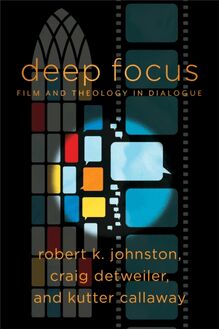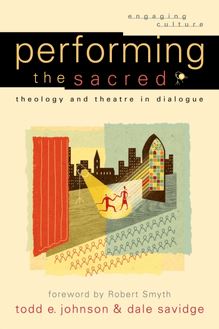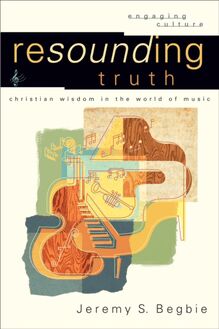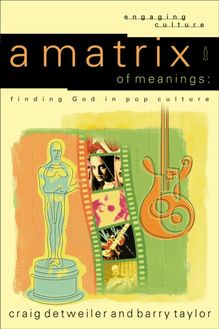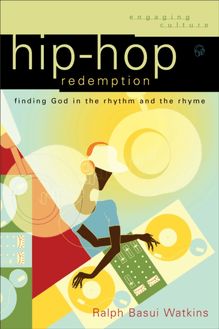-
 Univers
Univers
-
 Ebooks
Ebooks
-
 Livres audio
Livres audio
-
 Presse
Presse
-
 Podcasts
Podcasts
-
 BD
BD
-
 Documents
Documents
-
- Cours
- Révisions
- Ressources pédagogiques
- Sciences de l’éducation
- Manuels scolaires
- Langues
- Travaux de classe
- Annales de BEP
- Etudes supérieures
- Maternelle et primaire
- Fiches de lecture
- Orientation scolaire
- Méthodologie
- Corrigés de devoir
- Annales d’examens et concours
- Annales du bac
- Annales du brevet
- Rapports de stage
La lecture à portée de main
Vous pourrez modifier la taille du texte de cet ouvrage
Découvre YouScribe en t'inscrivant gratuitement
Je m'inscrisDécouvre YouScribe en t'inscrivant gratuitement
Je m'inscrisEn savoir plus
Vous pourrez modifier la taille du texte de cet ouvrage
En savoir plus

Description
Sujets
Informations
| Publié par | Baker Publishing Group |
| Date de parution | 01 août 2009 |
| Nombre de lectures | 0 |
| EAN13 | 9781441206060 |
| Langue | English |
Informations légales : prix de location à la page 0,0634€. Cette information est donnée uniquement à titre indicatif conformément à la législation en vigueur.
Extrait
performing the sacred
Engaging Culture
W ILLIAM A. D YRNESS AND R OBERT K. J OHNSTON , SERIES EDITORS
The Engaging Culture series is designed to help Christians respond with theological discernment to our contemporary culture. Each volume explores particular cultural expressions, seeking to discover God s presence in the world and to involve readers in sympathetic dialogue and active discipleship. These books encourage neither an uninformed rejection nor an uncritical embrace of culture, but active engagement informed by theological reflection.
performing the sacred
theology and theatre in dialogue
todde. johnson dale savidge
foreword by robert smyth
2009 by Todd E. Johnson and Dale Savidge
Published by Baker Academic a division of Baker Publishing Group P.O. Box 6287, Grand Rapids, MI 49516-6287 www.bakeracademic.com
Printed in the United States of America
All rights reserved. No part of this publication may be reproduced, stored in a retrieval system, or transmitted in any form or by any means-for example, electronic, photocopy, recording-without the prior written permission of the publisher. The only exception is brief quotations in printed reviews.
Library of Congress Cataloging-in-Publication Data
Johnson, Todd Eric, 1960-
Performing the sacred : theology and theatre in dialogue / Todd E. Johnson and Dale Savidge ; foreword by Robert Smyth.
p. cm. (Engaging culture)
Includes bibliographical references.
ISBN 978-0-8010-2952-3 (pbk.)
1. Theater-Religious aspects-Christianity. 2. Performing arts-Religious aspects-Christianity. I. Savidge, Dale, 1956- II. Title.
PN2049.J65 2009
264 .72-dc22 2009007647
Unless otherwise indicated, Scripture quotations are from the New King James Version. Copyright 1982 by Thomas Nelson, Inc. Used by permission. All rights reserved.
Scripture quotations labeled KJV are from the King James Version of the Bible.
Scripture quotations labeled NASB are from the New American Standard Bible , copyright 1960, 1962, 1963, 1968, 1971, 1972, 1973, 1975, 1977, 1995 by The Lockman Foundation. Used by permission.
Scripture quotations labeled NRSV are from the New Revised Standard Version of the Bible, copyright 1989, by the Division of Christian Education of the National Council of the Churches of Christ in the United States of America. Used by permission. All rights reserved.
From Todd:
To the memory of my parents, Glenn Johnson and Helen Johnson, who taught me by their performance of the Christian faith how to behave and act as a disciple and schooled me in faith, hope, and love.
From Dale:
To my wife, Tammy, and my children, Tim, Trish, and Olivia, who have had a part in everything I have ever done of any value.
contents
Foreword Robert Smyth
Introduction: Todd and Dale Go to the Theatre
1. A Survey of Christianity and Theatre in History
2. The Theology of the Theatrical Process
3. Live Theatre in a Virtual World
4. The Christian at Work: Being an Artist in the Theatre
5. The Christian at Play: Being an Audience in the Theatre
Conclusion: Dale and Todd Return to the Theatre
Notes
Bibliography
foreword
I spend much of my life in a black box.
It is a magical place to be. Every few weeks there is a gathering. Someone will bring a Word, someone a Sound, someone Light, another Movement. There is a cascade of collaboration. Something new, something for the moment, is being born.
And then we hold our breath. For this thing is never complete until the audience arrives. And the conversation begins again.
That s the rhythm of my life.
So, it s encouraging when someone writes a good book about it. About the things you care about.
What you are holding is not another how-to book, or let s all do Christian Art pamphlet; rather, it is a fascinating exploration of the theological dynamics that make the theatre such a vibrant art form. An intriguing look at how the theatre often parallels the quests and questions of theology.
At its center are three lights that keep returning to illuminate the work- incarnation, community, and presence.
Incarnation-the story breathed to life, the word made flesh.
Community-the gathering of live artists, live audience.
Presence-the sense of the holy, the taste of grace. From its beginnings theatre has existed to invoke or examine the transcendent.
At the heart of the theatre is always a story. For people of faith it is also The Story. The Story that lays a foundation of meaning for all other stories.
Because you re reading this I would assume you re interested in the confluence of faith and the larger culture, in ideas and art, in the refreshing impact of stories well told. That you are either a practitioner or an interested participant in the art form.
If you are a theatre artist it will remind you of the rich gift you share: a playground to explore both the hard questions and the immense joys of the human experience; to chart this unique place between angel and animal, the mix of real body and keen spiritual awareness.
If you are an audience member, it will open your eyes wider to the wonders and discoveries to be found in good theatre. Wet your appetite to find more.
It helps too, that both of the authors are invigorated by their faith and really love the theatre. Their excitement is palpable. For Dale and Todd this is a conversation, the sharing of an exploration together.
It s a joy to tag along.
Enjoy the journey.
Robert Smyth Lamb s Players Theatre San Diego, California
introduction Todd and Dale Go to the Theatre
The preliminary work on this book began in June 2005 during a week we spent together in Chicago. That week, Chicago s Lookingglass Theatre Company premiered Hillbilly Antigone , a musical reworking of the Sophoclean tragedy. It utilized early country music and melodramatic stage conventions to relocate the ancient conflict between personal conscience and the rule of the state to the Appalachian Mountains and the Hatfield-McCoy feuds. We had the pleasure of attending this show together and reflecting on it over pizza later that night. It s always better to experience theatre with a friend than alone. Theatre is meant to be an experience in community, the community between actors and their audience as well as the community of audience members. Good theatre should be digested after the fact, discussed and reexperienced through conversation and reflection. Doing this is one way of obeying the admonition to guard the heart : one doesn t avoid difficult subject matter but rather reflects and critiques it after the fact; and it never hurts to have a deep-dish pizza to lubricate the process.
Hillbilly was great fun, a great way to spend a couple of hours-in a beautiful theatre full of enthusiastic people experiencing a quality presentation marked with professionalism from conception to execution. We were reminded, again, how much the theatre experience differs from television or film. It matters greatly that you are in a room with other people, aware of the artists and the audience, fully alive together in both space and time, experiencing something together.
Purists might take exception to the liberties taken with Sophocles plot in Hillbilly Antigone . Others might react to Appalachian stereotypes. 1 Antigone is a monumental play, and the time-period relocation forces a reduction in the stature of the story and theme of the original. Nevertheless, Lookingglass Theatre created an entertaining and engaging experience. Generically it was a musical, with a comedic quality not unlike the film O Brother, Where Art Thou? another dramatic work derived from Greek mythology. A trio of bluegrass musicians took the role of a Greek chorus. The play read contemporary cultural themes into the Antigone story. Mountain religion (Creon was a Pentecostal preacher in the mountain community) and politics (Creon was played with the inflections of President George W. Bush) intermingled. Hillbilly Antigone , while not a perfect theatrical piece, provides a launching pad for introducing the important themes of our book.
Theatre has the ability to communicate multiple streams of content (political, social, religious, personal) on multiple levels (intellectual, emotional, kinesthetic). A multilayered theatre piece such as Hillbilly Antigone is challenging and thus richly rewarding. Audience members filter their experience in the theatre through their own political, religious, social, and personal worldviews. We responded, as Christians, to the use of a church as the setting for Pastor Creon s conflict with Antigone. We caught the subtle irony regarding Christianity but also the truth that religious people have been guilty of using religion as a weapon against individuals.
We were reminded again how pleasurable theatre is and also how very significant an experience in the theatre can be. Theatre audiences aren t lulled into being passive receptors; they are awakened and stimulated, made aware of their presence among the actors and other members of the audience. They are confronted with story, character, language, and ideas that engage the emotions and intellect together. Not just the content of the performance (the script, story, etc.) but the total experience can have a profound impact on audiences; for this reason theatre has endured for centuries and continues to thrive even with competition from its electronic offspring. Theatre, as interactive experience, connects with a deep human need for community and for interaction with other humans.
Theatre and Theology in Dialogue
This book began as a dialogue between theologian Todd Johnson and theatre artist Dale Savidge. As we grew in our friendship and as our conversations progressed, we realized that the dialogue wasn t just between us personally; it was between our disciplines. Not only do we have ideas to exchange as friends, but theology and theatre can also learn a great deal from each other.
In addition to speaking the language of our respective disciplines, we
-
 Univers
Univers
-
 Ebooks
Ebooks
-
 Livres audio
Livres audio
-
 Presse
Presse
-
 Podcasts
Podcasts
-
 BD
BD
-
 Documents
Documents
-
Jeunesse
-
Littérature
-
Ressources professionnelles
-
Santé et bien-être
-
Savoirs
-
Education
-
Loisirs et hobbies
-
Art, musique et cinéma
-
Actualité et débat de société
-
Jeunesse
-
Littérature
-
Ressources professionnelles
-
Santé et bien-être
-
Savoirs
-
Education
-
Loisirs et hobbies
-
Art, musique et cinéma
-
Actualité et débat de société
-
Actualités
-
Lifestyle
-
Presse jeunesse
-
Presse professionnelle
-
Pratique
-
Presse sportive
-
Presse internationale
-
Culture & Médias
-
Action et Aventures
-
Science-fiction et Fantasy
-
Société
-
Jeunesse
-
Littérature
-
Ressources professionnelles
-
Santé et bien-être
-
Savoirs
-
Education
-
Loisirs et hobbies
-
Art, musique et cinéma
-
Actualité et débat de société
- Cours
- Révisions
- Ressources pédagogiques
- Sciences de l’éducation
- Manuels scolaires
- Langues
- Travaux de classe
- Annales de BEP
- Etudes supérieures
- Maternelle et primaire
- Fiches de lecture
- Orientation scolaire
- Méthodologie
- Corrigés de devoir
- Annales d’examens et concours
- Annales du bac
- Annales du brevet
- Rapports de stage

